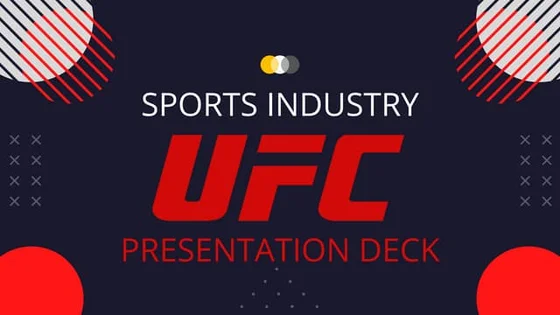The Ultimate Fighting Championship (UFC) is the premier mixed martial arts (MMA) organization globally, featuring the most elite fighters from all over the world. As with any business, the UFC operates in a competitive environment that is subject to both opportunities and challenges. A SWOT analysis UFC helps to provide a clear overview of the internal and external factors that influence the organization’s performance. In this article, we will explore the strengths, weaknesses, opportunities, and threats that affect UFC’s business and market position.
What is a SWOT Analysis?
A SWOT analysis is a strategic planning tool that helps businesses assess their internal strengths and weaknesses, as well as external opportunities and threats. The SWOT framework enables organizations to make informed decisions and devise strategies to capitalize on strengths, address weaknesses, exploit opportunities, and defend against threats.
Also Read: Hoverwatch Dashboard: A Comprehensive Guide to Tracking and Monitoring
SWOT Analysis UFC: Strengths, Weaknesses, Opportunities, and Threats
Strengths of UFC
The UFC has a number of strengths that contribute to its dominance in the world of MMA.
1. Global Brand Recognition
The UFC is recognized as the leading MMA organization globally. It has a massive fan base across various continents, with millions of viewers tuning in to its events. The UFC’s strong brand recognition is one of its greatest assets, helping it to secure lucrative sponsorship deals and partnerships with media outlets.
2. High-Profile Fighters
The UFC has attracted some of the most talented and high-profile fighters in the world, such as Conor McGregor, Khabib Nurmagomedov, and Ronda Rousey. These athletes not only bring their skill but also their fan following, making UFC events more appealing to a wide audience.
3. Strong Media and Broadcasting Partnerships
The UFC has established partnerships with major broadcasting networks like ESPN and UFC Fight Pass, allowing it to stream events globally. These collaborations ensure that UFC’s events are accessible to a vast audience, which contributes to its revenue generation and growth.
4. Unique and Engaging Events
UFC events are known for their exciting matchups and intense competition. The organization offers a range of fight formats, including championship bouts and exciting undercards, which keep fans engaged and eager for more. This uniqueness is a significant strength that differentiates UFC from other combat sports organizations.
Weaknesses of UFC
Despite its many strengths, UFC faces some weaknesses that can impact its business operations.
1. Dependence on High-Profile Fighters
While having big-name fighters like Conor McGregor is a significant strength, the UFC is also somewhat dependent on these fighters to attract viewers. If any of these top fighters retire, face injury, or lose popularity, the UFC could see a drop in interest and viewership.
2. Controversies and Legal Issues
The UFC has occasionally faced controversies surrounding its fighters, including legal issues related to doping, fighter misconduct, and behavior outside the ring. These incidents can tarnish the reputation of the organization and alienate certain fans and sponsors.
3. Health and Safety Concerns
MMA is a physically demanding and high-risk sport, which can lead to concerns over fighter safety. Injuries and long-term health effects on fighters could lead to criticism of UFC’s practices. The organization has made efforts to improve safety measures, but these concerns still exist and could impact its image.
4. Limited Control Over Fighters’ Careers
Fighters in the UFC often have their own management teams, which can sometimes lead to disagreements regarding pay, promotions, and matchups. UFC’s limited control over fighters’ careers could result in difficulties when trying to schedule ideal matchups or maintain relationships with top athletes.
Opportunities for UFC
The UFC is well-positioned to capitalize on several opportunities that could help it grow its brand and expand its reach.
1. Expansion into New Markets
UFC has the opportunity to expand its presence into emerging markets like Asia, Africa, and Latin America. With growing interest in MMA across these regions, UFC could host events and tournaments, introducing the sport to new audiences and further increasing its global fanbase.
2. Digital Growth and Streaming Services
With the rise of digital media, UFC has the opportunity to strengthen its online presence. UFC Fight Pass and streaming platforms like ESPN+ allow fans to access events on-demand. Expanding these digital offerings and improving the user experience can open up new revenue streams and attract younger, tech-savvy audiences.
3. Fighter Development and Talent Pool
Investing in fighter development and nurturing new talent can provide the UFC with a pipeline of future stars. The UFC already has programs like the Contender Series, but expanding these efforts to create a deeper talent pool can help ensure the organization remains competitive and relevant for years to come.
4. Collaborations and Cross-Promotions
UFC can explore cross-promotions with other sports and entertainment organizations to tap into new fan bases. Partnerships with brands in fashion, fitness, and media can help the UFC expand its revenue sources and attract new viewers to its events.
Threats to UFC
The UFC also faces several threats that could impact its long-term growth and stability.
1. Competition from Other Combat Sports
While UFC is the leading MMA organization, it faces competition from other combat sports such as boxing, kickboxing, and even rival MMA promotions like Bellator. As these organizations grow and attract top talent, UFC may find it challenging to maintain its dominance in the industry.
2. Economic Recession
An economic downturn could lead to reduced spending on entertainment and sporting events. Since UFC events often require significant ticket purchases and pay-per-view fees, a recession could impact its bottom line, especially if fans begin to prioritize other forms of entertainment.
3. Regulatory Changes
MMA is a highly regulated sport, and changes in regulations or government policies could impact UFC’s operations. Issues related to fighter safety, licensing, and international event hosting regulations may affect UFC’s ability to function as it currently does.
4. Social Media Backlash and Negative Publicity
In today’s digital age, UFC faces the risk of negative publicity on social media platforms. Fighter controversies, rule violations, or even negative fan reactions can spread rapidly online, potentially damaging UFC’s reputation and public image.
FAQs
1. What is the importance of a SWOT analysis UFC?
A SWOT analysis UFC is essential for understanding the organization’s internal strengths and weaknesses, as well as external opportunities and threats. This analysis helps UFC’s leadership make strategic decisions, plan for future growth, and maintain its competitive advantage.
2. How does UFC maintain its competitive edge?
UFC maintains its competitive edge through its strong brand recognition, global reach, partnerships with major media outlets, and a continuous influx of top-tier fighters. It also capitalizes on emerging markets and new digital opportunities to engage with fans.
3. What are the main threats facing UFC?
Some of the main threats to UFC include competition from other combat sports organizations, economic downturns, regulatory changes, and social media backlash. These factors can impact UFC’s viewership, reputation, and overall revenue.
4. How can UFC capitalize on opportunities?
UFC can capitalize on opportunities by expanding into new international markets, increasing its digital presence through streaming services, and developing a pipeline of future stars. Collaborations with other sports and entertainment brands also present significant growth potential.
Conclusion
A SWOT analysis UFC provides a comprehensive understanding of the strengths, weaknesses, opportunities, and threats facing the organization. By leveraging its strengths, addressing weaknesses, seizing opportunities, and mitigating threats, the UFC can continue to thrive as the global leader in mixed martial arts.

